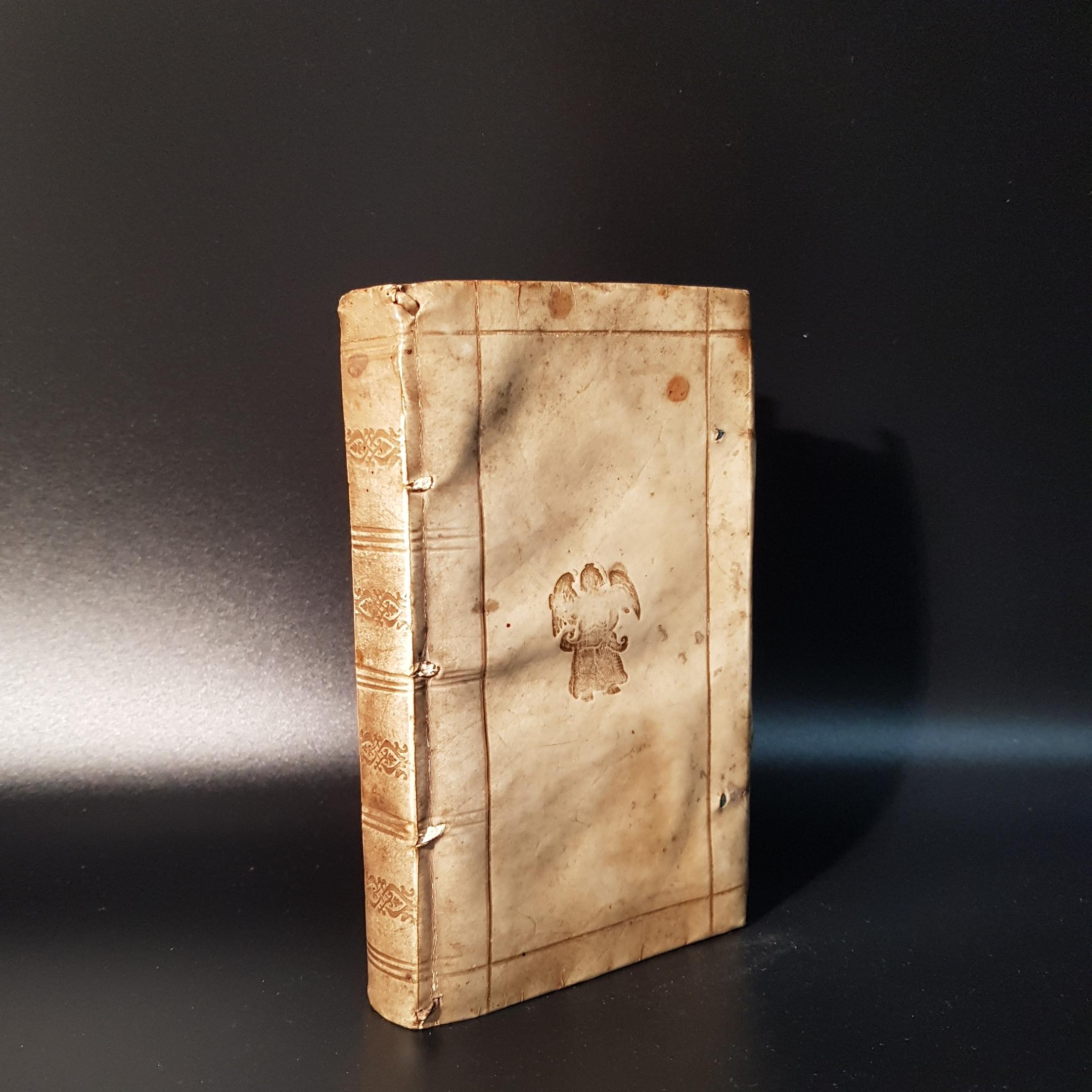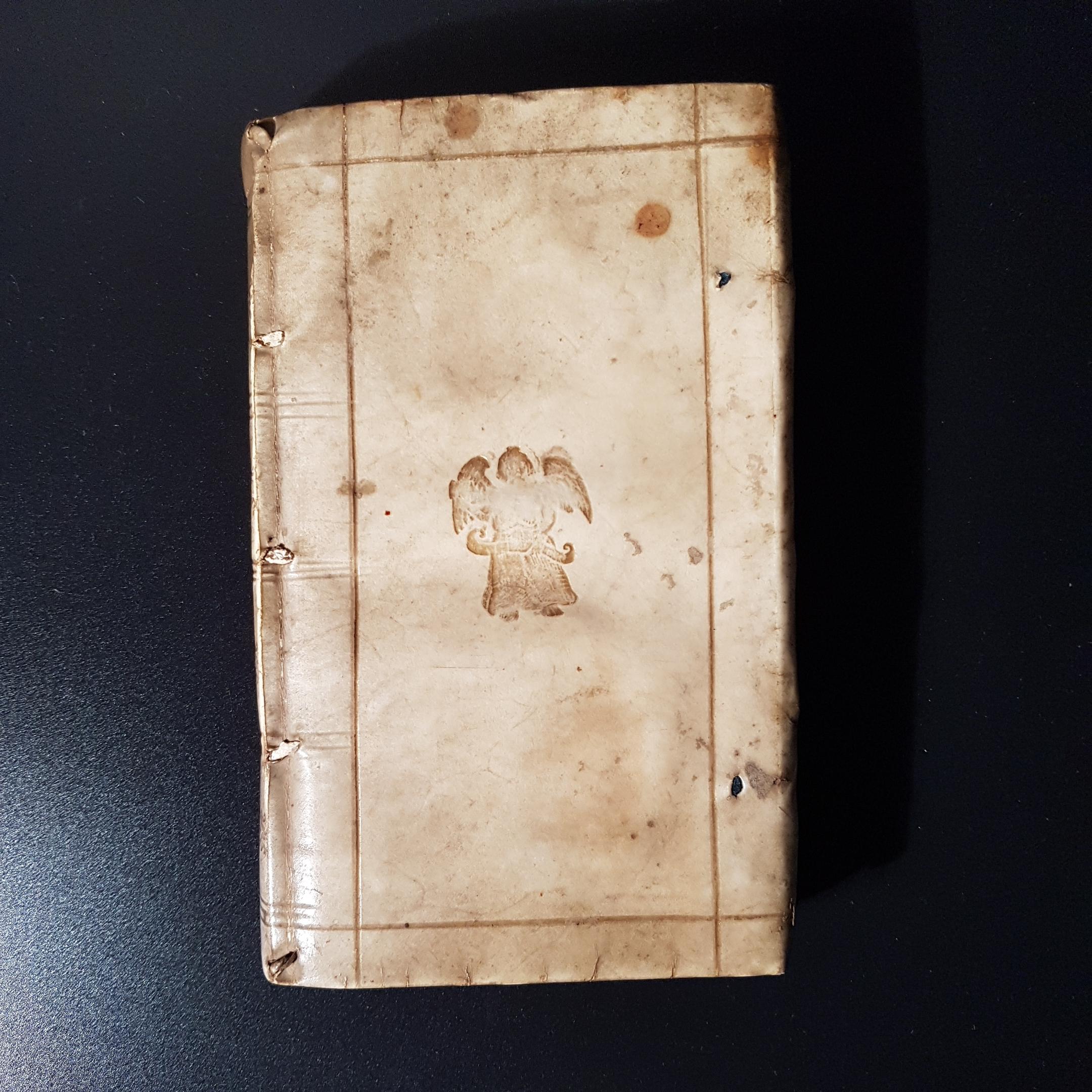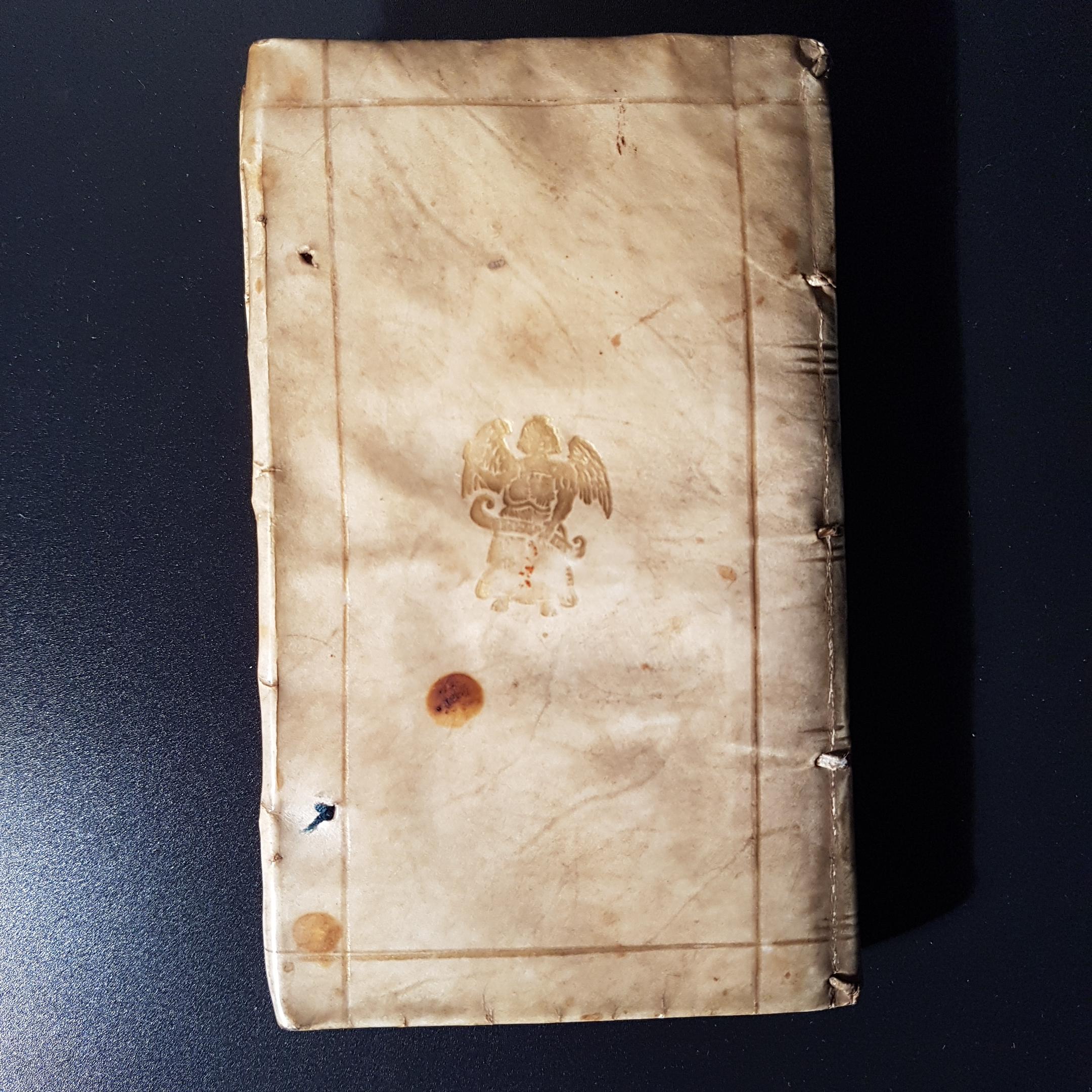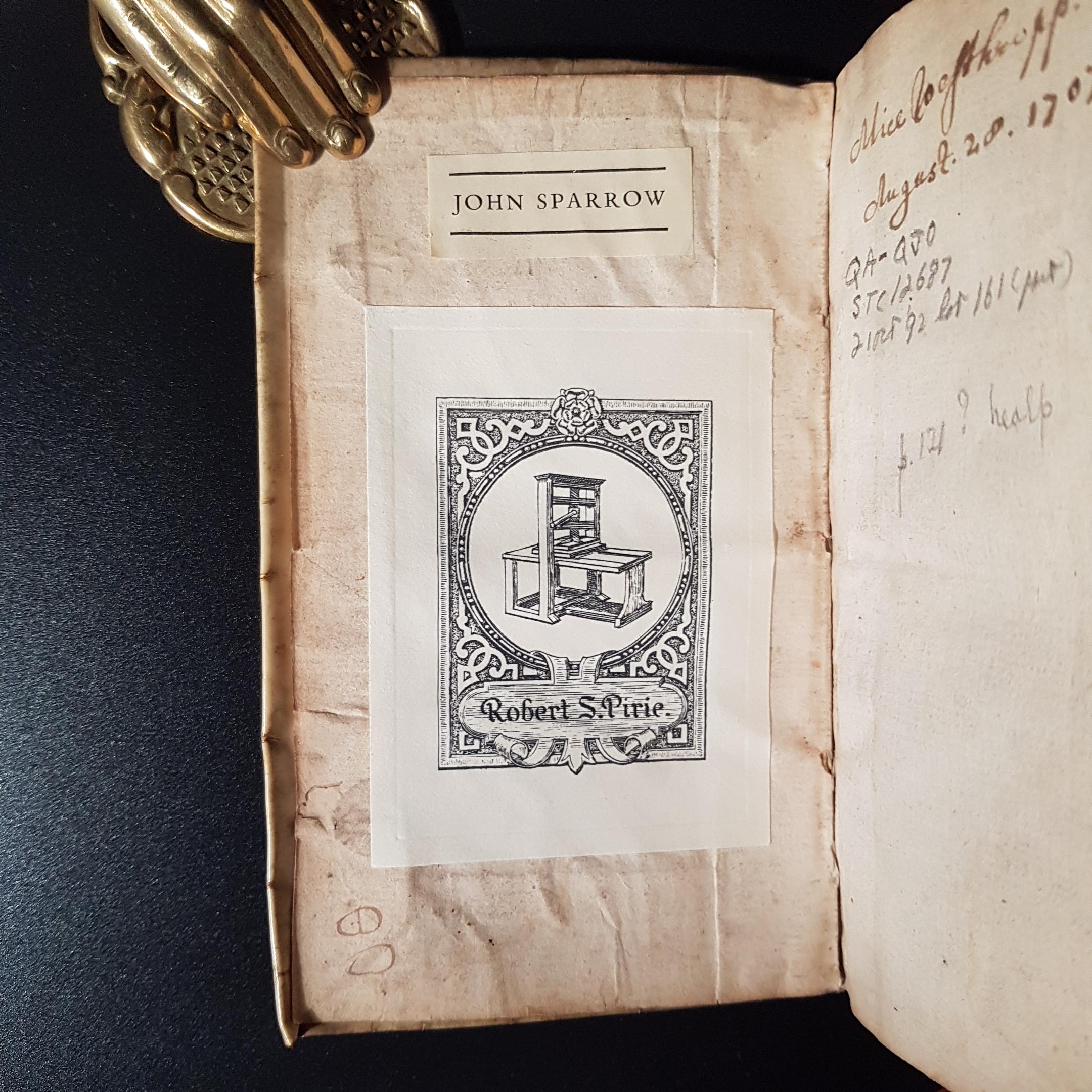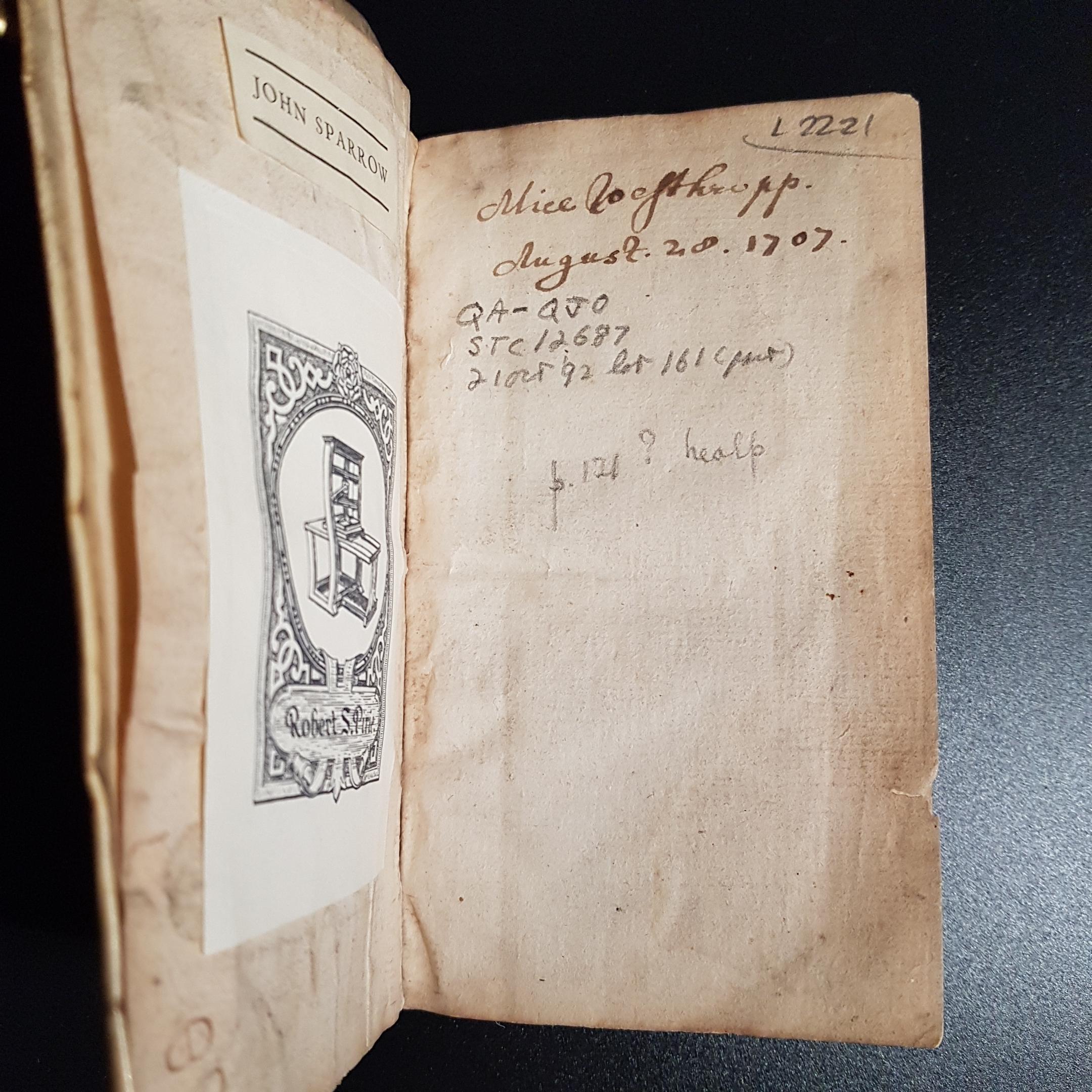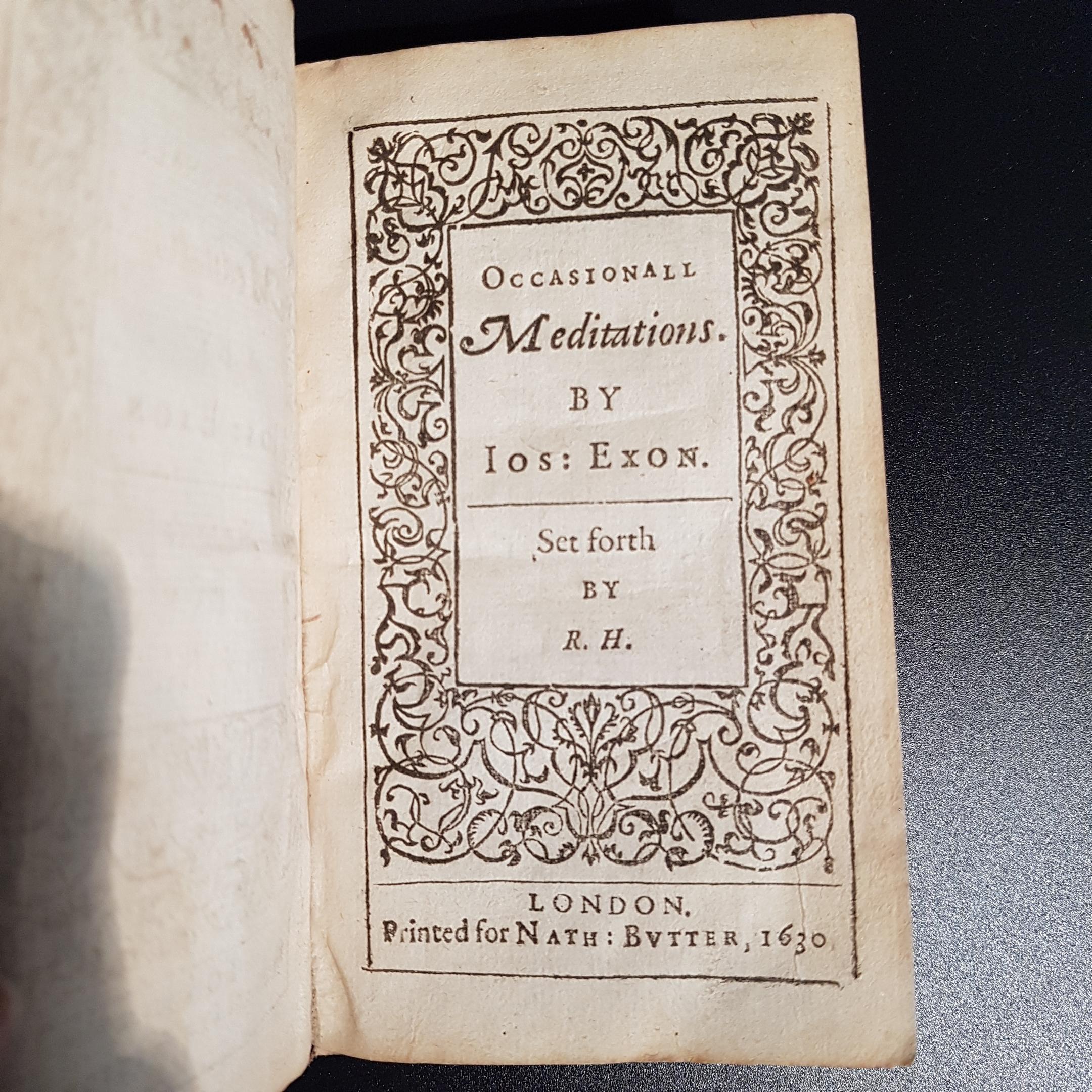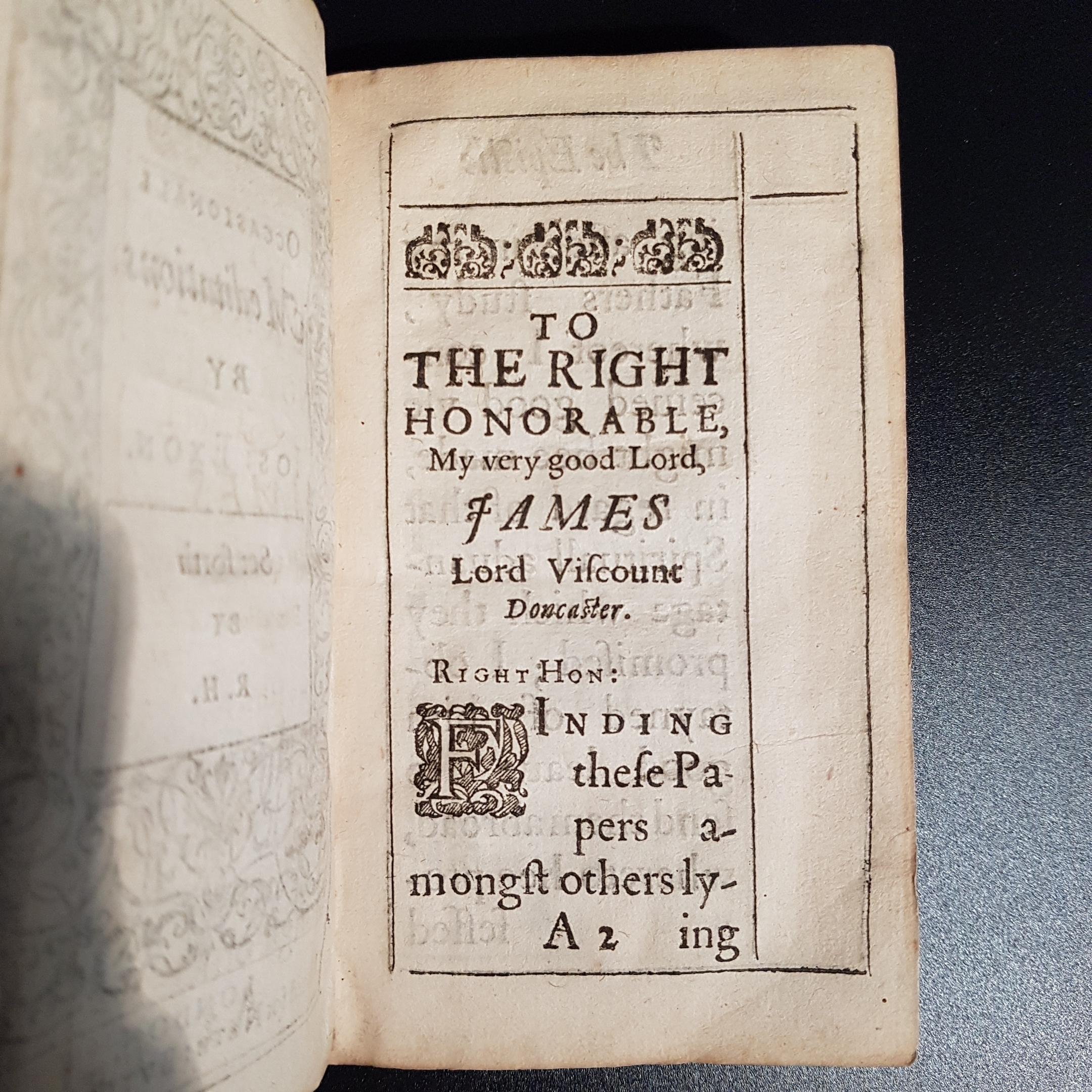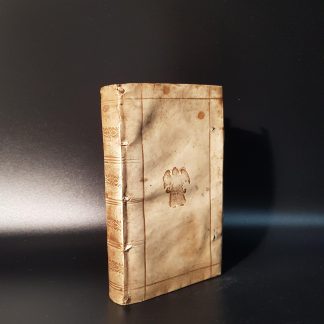HALL, Joseph
Occasionall Meditations. By Ios: Exon. Set forth by R.H.
London, printed [by B. Alsop and T. Fawcet?] for Nath: Butter, 1630£3,950.00
FIRST EDITION. 12mo. pp. [xxiv], 251, [i]. A-L¹² M . Roman letter some Italic. Title within ornate woodcut border, text and tile with box rule, woodcut initials and headpieces, typographical ornaments, occasional (editorial?) manuscript corrections in the text ‘Mice. Josef Thorpe August 20 1707’ on fly, “John Bright” in a contemporary hand at the end of the text, book-label of John Sparrow on pastedown, Robert S Pirie’s below. Some age yellowing. A fine copy, crisp and clean in very charming contemporary English polished limp vellum, covers bordered with a single gilt rule, figure of an angel gilt stamped at centres, spine triple gilt ruled in compartments, fleurons gilt at centres, yapp edges, remains of blue silk ties.
First edition of this important work of meditations full of the the epigrammatic concision and wit that are the hallmark of Hall’s work in the genre; a fine copy in a charming contemporary binding. These meditations differ from his earlier works in that they focus on observations from nature and moments that occur in every day life. “The Occasional Meditations show the latest development of Hall’s meditative practices. In order to gain inspiration, Hall went directly to nature. He turns from focusing on scripture or other heavenly things to mediation on nature. This is different from the Lutheran tradition because it goes against the sola scriptura tradition….the meditations can focus on any object in nature… This focusing is the starting point for leading the reader to a religious or spiritual experience.” Darrau: ‘The Reception of English Puritan Literature in Germany.’
“Bishop Hall’s The Art of Divine Meditation (1606, 1633) and the three editions of Occasional Meditations (1630, 1631, 1633) warrant .. recognition. Contemporaries noted their influence or praised “the divine, and eloquent Contemplations, and occasional Meditations of Doctor Hall”; and modern scholars emphasise Hall’s importance in the development of Protestant meditation. .. The genre commonly associated with Hall and practised by other seventeenth century authors turns on a distinction from formal meditation. By its nature, contemporary commentary notes, the occasional meditation resists the formality of the meditative practice variously described as set, solemn, or deliberate. Bishop Hall stresses “there may be much use, no rule” for the meditative mode that depends upon “suddain invention not composed by study.” It is essentially occasional or, in the often-repeated synonyms, extemporal, sudden, quick, rapt, and ejaculatory. Hall offers the further distinction between meditation “either extemporal and occasioned by outward occurrences offered to the mind; or deliberate and wrought out of our own heart. .. Hall’s fundamental distinction between the extemporal and the deliberate“outward occurrences offered to the mind” as opposed to those “wrought” from the heart, refines the accepted belief that meditation in general was a “bending of the mind” upon spiritual concerns. Later commentaries on the occasional meditation note a characteristic “sudden fixing of the mind,” a “profitable minding,” or a “serious bending of the mind.” Some attempt is also made to differentiate meditation from study, which turns on the difference between the head and the heart or discovering the truth as opposed to improving the truth spiritually.” Raymond A. Anselment ‘Robert Boyle and the Art of Occasional Meditation’
Joseph Hall (1574-1656), Bishop of Norwich, poet, moralist, satirist, controversialist (against Milton, i.a.), devotional writer, theological commentator, autobiographer and practical essayist, was one of the leading hommes de lettres of the Jacobean age. He was at the centre of public life under James I representing that King at the Synod of Dort in 1618, assisting in his negotiations with the Scots and in Lord Doncaster’s French embassy and was foremost among the defenders of the temporal and spiritual powers of the Bishops in the Puritan Parliament of 1640-41. However, it is as a writer that Hall is now remembered. Fuller called him ‘the English Seneca for his pure, plain, and full style’. While Hall may not have been the first English satirist, as he claimed, he certainly introduced the Juvenalian satire into English.
ESTC S124972 STC 12687. Not in Pforzheimer or Grolier.In stock


